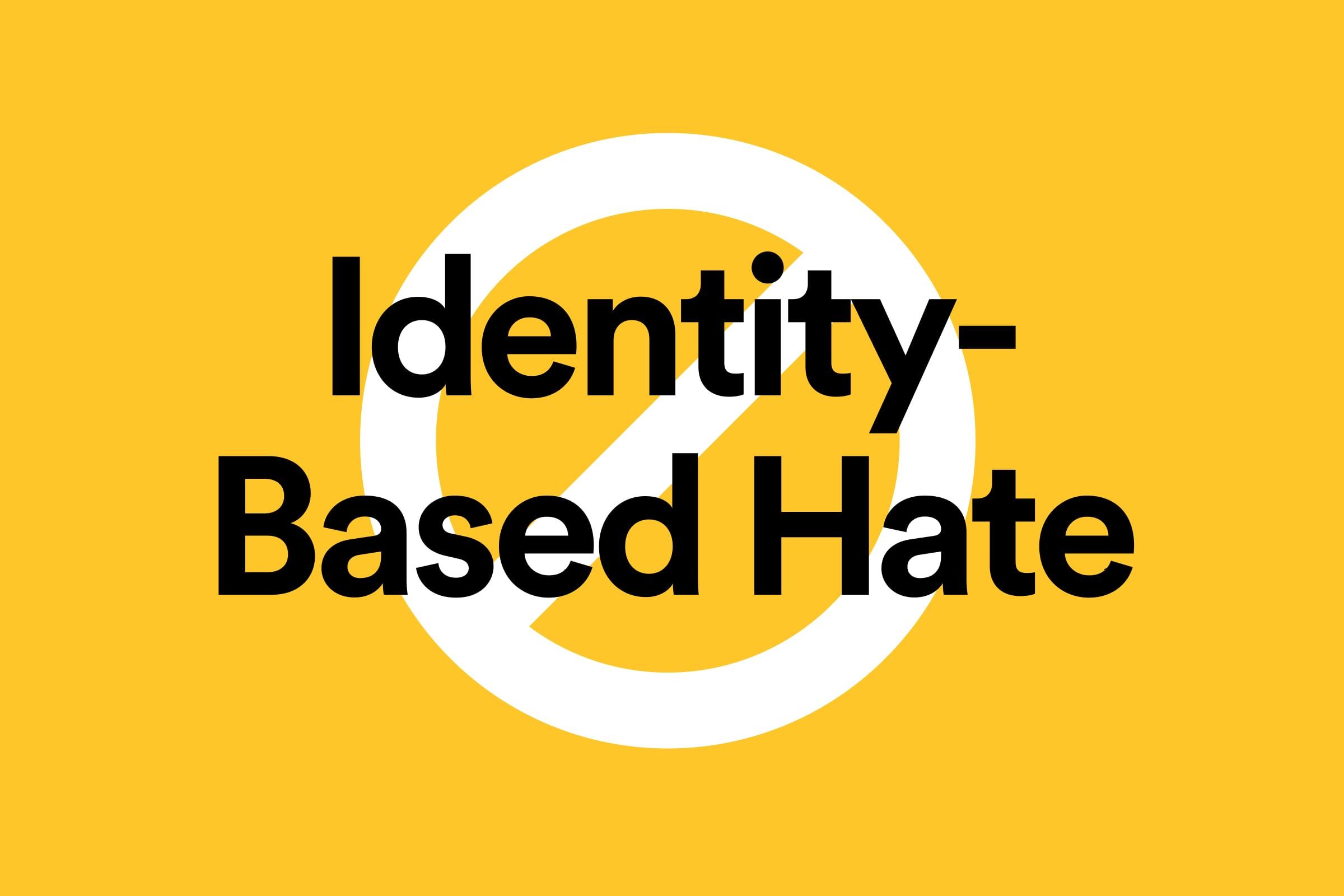As a platform rooted in kindness and respect, Bumble works tirelessly to ensure that members of our community can connect with each other safely. We expect our members to respect other people’s beliefs, interests, and opinions as long as they’re not discriminatory or harmful.
Bumble and Bumble For Friends take a strong stance against identity-based hate. By identity-based hate, we mean any content or behavior that promotes hatred and contempt against marginalized or underrepresented groups with protected attributes such as race or ethnicity; national origin or nationality; immigration status; caste; sex, gender, and gender identity or expression; sexual orientation; disability or serious health condition; and religion or belief. To keep targeted hate off of our platform, we’ve updated our policy on how we respond to this type of content and behavior.
Our policy is rooted in our commitment to celebrating diversity and inclusion. It focuses specifically on protecting community members who may be targeted with hate and prejudice simply because of who they are, and even more so for members who may disproportionately experience identity-based hate because of their multiple and overlapping identities. We take a strong stance against identity-based hate because of the emotional harm it causes, and we do not want members of our community to feel excluded or unwelcome. For that reason, this policy also applies to hateful content or behavior reported to us regardless of if it’s committed outside of Bumble (e.g. via text or in person) or against public figures and people who aren’t members of our community.
Read on for more guidance on what may result in content being removed, receiving a warning, or being banned from Bumble.
Inciting or praising violence
Bumble strictly prohibits inciting or praising violence of any kind, especially when based on someone’s identity. This includes wishing, praising, or supporting violent attacks against an individual or group because of their protected attributes.
Advocating hate groups
It’s against Bumble’s policy to glorify or express support for any known hate groups that have a mission based on a hateful ideology (e.g., white supremacy, misogyny, homophobia, transphobia, islamophobia, antisemitism). This includes sharing images or symbols affiliated with a hate group anywhere on Bumble.
Expressing contempt
Our policy prohibits any member of our community from attacking, vilifying or demeaning an individual or group on the basis of a protected attribute. This includes insulting or degrading behavior, such as:
- Supporting harmful stereotypes
- Mocking specific physical features associated with a protected attribute
- Dismissing or targeting victims of identity-based hate crimes
- Intentionally misgendering (i.e. intentionally using someone’s wrong pronouns or gender) or dead-naming (i.e. intentionally calling someone by a name they no longer identify with) someone
- Describing people with protected attributes in a way that denies them of their humanity
Expressions of contempt shown through hateful images (e.g. pictures, memes, videos) and symbols (e.g. flags, gestures, logos) that are inherently offensive, or have been historically used to promote hostility against individuals or groups, are also prohibited.
Using identity-based slurs
Slurs, phrases, or epithets can be inherently offensive towards marginalized and underrepresented groups. Using these words against another member with a clear intent to intimidate, dehumanize, or degrade on the basis of a protected attribute is prohibited.
Spreading hateful misinformation
Misinformation can be incredibly damaging. It’s against our policy for any Bumble member to intentionally or unintentionally spread false, inaccurate, or largely misleading content that fuels hate on the basis of a protected attribute.
Intentionally making false reports to Bumble
Every Bumble member has the right to report a profile if they’re made to feel unsafe or if they believe someone has violated our Community Guidelines. However, intentionally reporting another member solely based on a protected attribute will not be tolerated.
This goes for all protected attributes, including someone’s gender identity. Bumble’s community includes people with all gender identities, and members are welcome to self-identify their gender. Women, men, and non-binary folks can express their gender in a variety of ways through different appearances, which means that some people may not always appear in the ways that you immediately recognize as traditionally “feminine” or “masculine.” In these cases, folks are not being deceptive nor are they violating Guidelines.
If we believe you are intentionally reporting someone because of their gender expression or another protected attribute, we may take action against your account.
Harmfully stating connection preferences
We respect that some members may have dating preferences based on protected attributes, but we also recognize that the way these preferences are communicated can sometimes reinforce harmful stereotypes and make people feel unwelcome. Therefore, members may only state preferences around protected attributes when:
- The member’s preference is communicated in a positive way and states what they are looking for instead of what they’re not looking for (e.g. “I’m looking for someone who shares my atheist beliefs” instead of “No religious people”); and
- The way the member states their preference clearly doesn’t intend to cause harm.
Please note that members aren’t allowed to state any connection preferences around caste on their profiles. We allow members to ask a match about their caste in a private message, as long as it’s asked respectfully and with kindness.
How to report identity-based hate
We hope that you won’t come across identity-based hate on our platforms. Bumble uses technology that monitors and reviews our platforms for profiles, messages, and images that may cause harm to members and groups with protected attributes so that it can be reviewed and action may be taken.
If you see someone whose actions go against our identity-based hate policy, Block & Report them. To report a match, you can find the Block & Report button by tapping on the three gray dots in the top right corner of your chat screen with them. If you want to report someone who you haven’t swiped on yet, you can scroll to the bottom of their profile and tap on Hide & Report. You can also use Block & Report on someone you’ve unmatched with, even if you’ve forgotten their name, by contacting our support team, either on our website or in the app, and providing as much information as you can.
Every report is reviewed by a member of our support team and all submissions are confidential so the person you reported will not know who flagged their account. If the reported person is found to have violated our identity-based hate policy, they may receive a warning, have their harmful content removed, or their account may be blocked. Any action that our team may take will always consider the context, intention, and impact of the behavior or content.
If you have any questions or feedback about our identity-based hate policy, please reach out to our team.




Social Media